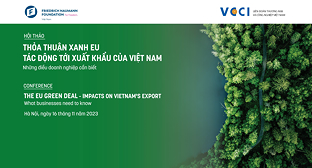India may have to go along or face isolation
15/06/2008 12:00
Officials fear there ‘s a concerted effort by some developed countries to checkmate
New Delhi: With the pressure to conclude the Doha Round of trade talks mounting at the World Trade Organization, or WTO, some developed countries are seeking to corner India whereby it may be left with the option of either going along with an unfavourable deal or being branded as a “deal breaker” if it chooses to dig its heels in, a government official has said.
The Doha Round of trade negotiations, which began in 2001 to remove tariff barriers and give a fillip to global trade, is yet to manage a consensus.
The fears of the Indian government come about in the the backdrop of expectations, in some quarters, that a meeting of world trade ministers may be convened in late June or early July to work out a deal.
“There is no date set for a ministerial but the hope is the officials will make enough progress for one in late June or early July,” US trade representative Susan Schwab said in a telephone interview to Reuters on Friday.
Matters have come to a head after the submission of the global body’s draft proposals—which detail the level and extent of cuts in tariffs and subsidies in agriculture and non-agricultural sectors—on 19 May and its subsequent rejection by India on the grounds that it was “violative of the Doha mandate” and aimed at “dividing the developing countries”.
Part of the dispute centres on the current state of talks in “rules”, which govern anti-dumping duties, and subsidies and countervailing measures and which is one of the key areas of negotiations in WTO apart from agriculture, non-agricultural market access, or Nama, and trade in services.
“There are clear indications that the EU and the
However, the office of EU’s trade representative, Peter Mandelson, denied that there was a concerted effort to isolate
Schwab’s office declined comment. “We do not have a comment on this,” said Sean M. Spicer, assistant
The EU official, however, hinted at their disappointment with
The Indian government on the other hand cites instances in the negotiations over “rules” to back their case. “
Under the so-called “zeroing” method of calculating anti-dumping duties adopted by the US, the penalty is assessed on the prices charged by exporters from a country who allegedly dump their products (or sell it at a lower price than the fair cost), and not as an average of the prices charged by all exporters. This results in a higher dumping duty being levied on all exporters from that country.
Suparna Karmakar, senior fellow at the International Council for Research on International Economic Relations, does not agree
“Multilateral trade negotiations are more political than economic. Ultimately, countries make a deal which suits their national interests.
Another trade expert, based in New Delhi and who did not wish to be identified, finds it “surprising” that India should feel isolated during the Doha round which saw it getting “unprecedented backing” from other developing countries. “If
However, I believe India should use these negotiations to get the best deal in services trade, where India stands to gain in future, in return for some cuts in agriculture,” he added.
The official concedes that in agriculture negotiations,
Udit Misra
Posted:
Reuters in
Source: www.livemint.com
Các tin khác
- Exports face challenges despite enjoying robust growth (26/04/2024)
- Vietnam ranks fifth among aquatic product suppliers for Singapore (26/04/2024)
- Some firms likely to close due to higher anti-dumping tariff on plywood products in S Korea (26/04/2024)
- Foreign businesses increasingly seek export sources in Vietnam (26/04/2024)
- Japan's investigation into China's graphite electrodes to 'affect regional cooperation' (26/04/2024)
 Home
Home
 About Us
About Us




















